NYCHA Brings Money Management to Public Housing in Pilot Program

NYCHA residents are saving money every month by simply collecting the change they bring home at the end of a day. Photo: NYCHA on Instagram
by David Greene
The New York City Housing Authority (NYCHA) has teamed up with the New York City Department of Consumer Affairs and the non-profit Urban Upbound, that will bring financial consultants to six Bronx housing complexes to assist residents in fixing poor credit, pay down debt, save money and build credit.
According to the program manager Tischelle George of NYCHA’s Office of Resident Economic and Sustainability (REES) Program, the 1-year pilot program that kicked off in November, will assist residents in financial literacy that will help them increase income through improving asset management.
After hosting an event at the end of May at the Highbridge Gardens Community Center on University Avenue, George stated that the program called ‘Residents CAN!,’ which stands for Residents Creating Assets and Networking is a “budgeting and debt reduction program for NYCHA residents.” Working with Urban Upbound, residents will have access to two financial coaches who will work with residents at six NYCHA complexes, working one on one with residents.
George stated, “They will access the residents at the initial meeting to access their needs and where they are right now financially. If there in crisis, then they would refer them to another entity that would help them,” assisting residents with looming evictions, speaking with creditors or applying for SNAP benefits as well as long term goals like buying a home or saving for retirement.
Currently 160 residents have taken part in the unique program, George concludes, “We have the potential to reach several thousand residents… and we’re going to take what we learn from this imitative and then determine it it’s something we want to scale and then replicate.”
Funding for the program was secured by the Department of Consumer Affairs through a grant from the J.P. Morgan Chase Foundation and additional funding came from the Mayor’s Fund to Advance New York City.
At the initial consultation participants were presented with the “Water Bottle Challenge,” by their financial coaches to save the change they come home with at the end of a day and toss it in a jar, and many are often surprised how much can be saved with spare change.
Open to all NYCHA residents, the program is housed at six developments: Melrose Houses, Morrisania Air Rights, Jackson Houses, Parkside Houses, Highbridge Gardens and the Davidson Houses. Urban Upbound and the University of North Carolina Center for Community Capital provide the research and support for the residents.
According to the U.S. Department of Housing and Urban Development, as of January, 2017 the average income for the 500,000 residents living in public housing is $24,336 and their average rent is $509.
Founded in 2004 at the Queensbridge Houses in Long Island City, Queens, Urban Upbound has since expanded to sections of Queens, Manhattan and now the Bronx.
Dan Ping He, the Community Engagement Manager at Urban Upbound said of the program, “They work one on one with residents, they go through an income expense analysis to try and see what kind of resources they have,” before a short and long term plan is made.
He added, “Often times they come to us and they say they make this amount of money, but at the end of the month they don’t know where it’s gone, either spending more than they have or they don’t know where the extra dollars should be going, so we do the analysis… and they actually see they can save $5 or $50 a week or month.”
He explained the program is a success just by residents learning of the program and taking part, while NYCHA would undoubtedly like to see some of it’s residents more financially secure.
Department of Consumer Affairs Commissioner Lorelei Salas said of the program, “Our office of Financial Empowerment is committed to helping hardworking families overcome financial barriers related to income, credit and dept. Salas added, “The Residents CAN! program is a community based financial coaching model tailored to fit the needs of public housing residents.”
NYCHA resident Cassandra Bowlin said of her participation in the program, “The program is really nice, I’m saving money now. Before I wasn’t very concerned with my credit report and now they keep me informed on those things and now I’m saving money, so when I get older I’ll have a little something for retirement.”
Residents of NYCHA who would like to learn more of the program can contact Urban Upbound at (718) 541-4116 or visit their website here.

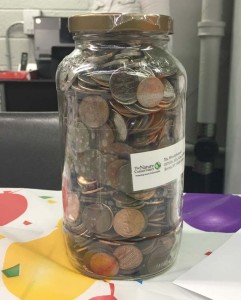


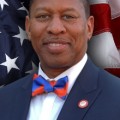
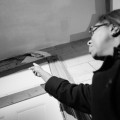
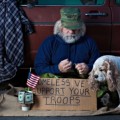
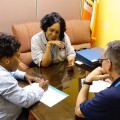











Follow Us